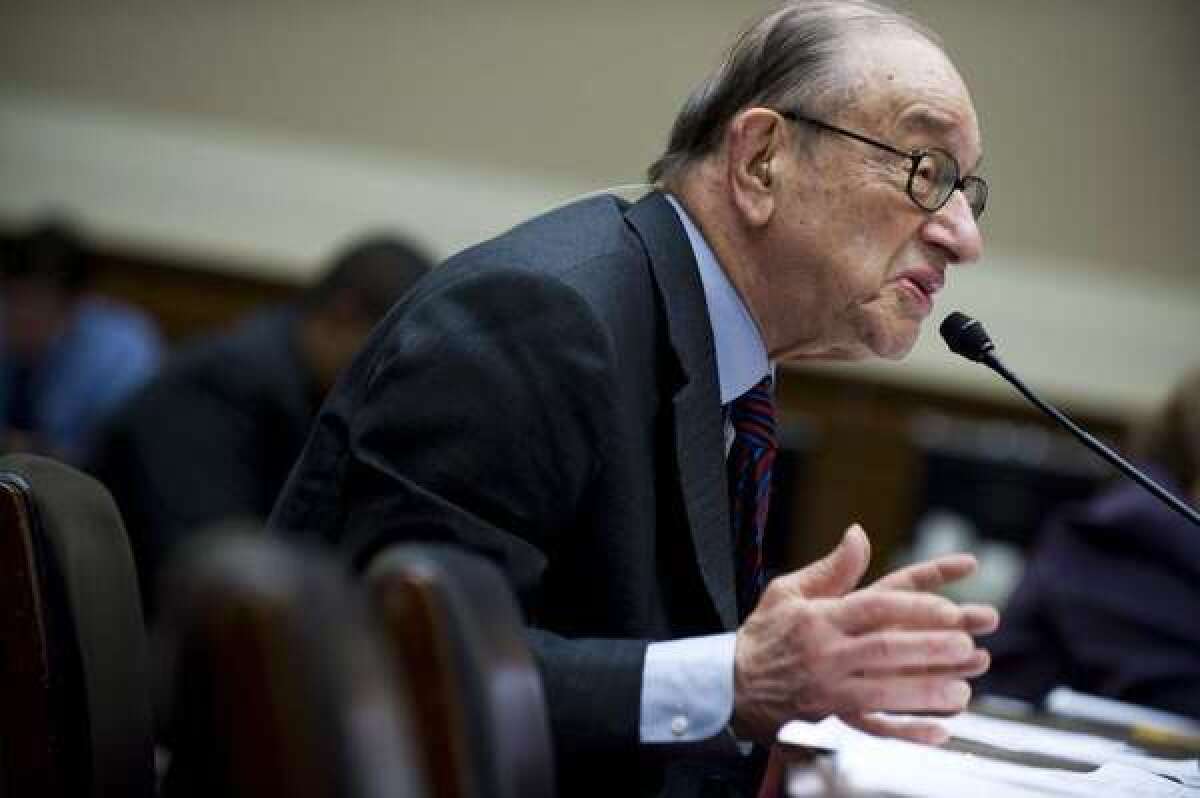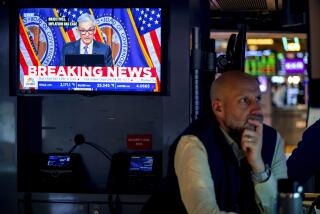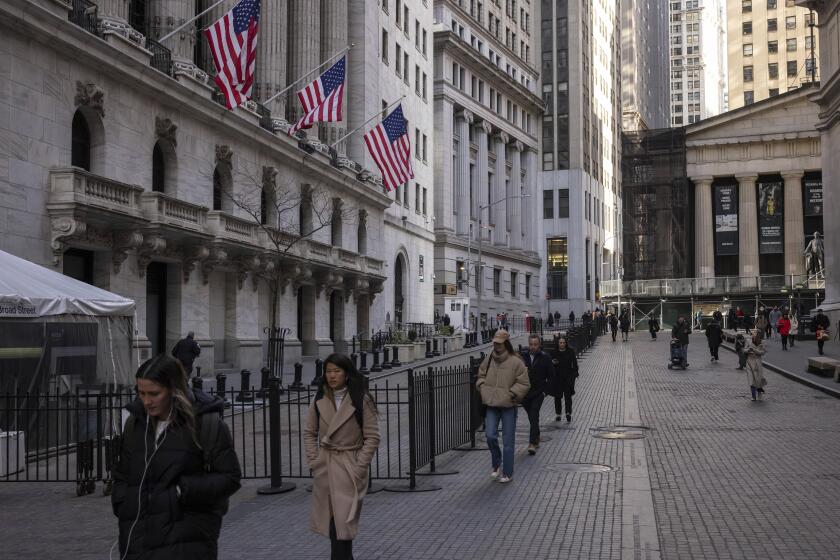Greenspan says market reaction key to federal budget cuts’ effect

WASHINGTON -- Former Federal Reserve Chairman Alan Greenspan said the stock market reaction to the large federal budget cuts slated for March 1 will determine how much they affect economic growth.
The $85 billion in cuts this fiscal year, part of a nearly $1.2-trillion spending reduction over the next decade, will have a negative effect, he told CNBC on Friday.
And he believes the White House and Congress will not come together to prevent them.
“I think the odds of it occurring are very high,” Greenspan said of the cuts, known as sequestration. “The effect is not going to be horrendous, but it’s going to be marked.”
Quiz: How much do you know about looming federal budget cuts?
But if the stock market can weather the initial hit from spending reductions, the “effect will be rather minor,” he predicted.
Stock prices are not only a leading indicator of economic activity, they also are believed to help add to growth through the “wealth effect,” the theory that rising portfolio values lead investors to feel more comfortable spending money.
The Dow Jones industrial average is up nearly 7% so far this year despite concerns about the looming federal spending cuts. It’s unclear how the market will react if the cuts take place.
Economists have estimated that the cuts would reduce already weak economic growth by about half a percentage point this year.
Greenspan was known as “the Oracle” during his more than 18 years as Fed chairman, which ended in 2006. But his reputation took a major hit because he did not foresee the collapse of the housing market, which led to the Great Recession and financial crisis.
Greenspan said recent weekly economic data show 2013 is starting off “reasonably well.” But he is worried about Washington’s ability to deal with the nation’s rising debt.
“This is a wholly unsustainable type of economic series of events that are playing out,” he said, noting the rising costs of entitlement programs related to the retirement of baby boomers.
“The low-hanging fruit is gone,” Greenspan said. “To get the budget deficit down will require some very unpopular actions.”
ALSO:
Automatic budget cuts are almost certain
At G-20 meeting, officials seek to quell talk of ‘currency war’
Bowles, Simpson tell policymakers to get serious on debt reduction







